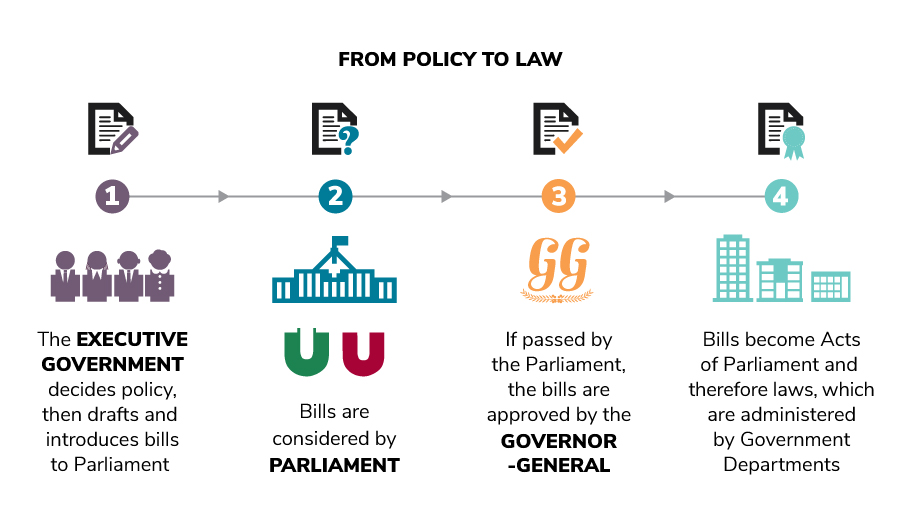How a Bill becomes a Law
The process of making a law
Excutive (Prime Minister and Cabinet)
The executive government (Prime Minister and Cabinet) creates a bill (potential law). They will then propose it to Parliament.
Parliament (House of Representatives and Senate)
The speaker will announcer the bill that is being introduced. Members will then write down if they agree with this proposed bill. The house of reps or senate may send the bill to a committee to get a public opinion from experts or others interested in the matter. The committee will write a report that will be shown back to the house of reps or senate. Amendments will now be said. People will then vote on the amendment. The bill if approved will then be taken to the senate by the sergeant at arms. The senate will then debate on the bill.
People vote by saying “aye” or “no”, or by moving left or right to the side they agree with.
Governer General (representative for the King)
If a bill is passed by parliament it is sent to the Governor General they can then decide to pass the bill or not. If a bill is passed it is called Royal Assent.
Departments
After the bill is passed, it is implemented by government departments like police make sure that the laws are followed.
For example, if a law was passed that changed the voting age. The minister of youth would have to: get it out to the public this can by with social media, news reports and informing schools. They would also have to update the electoral roll, make new policies, and introduce new procedures.
